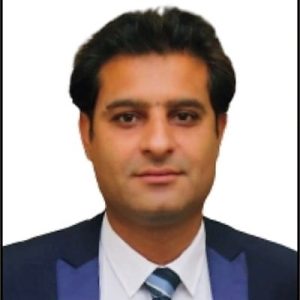Union Council (UC) polio officers are responsible for implementing and monitoring polio vaccination campaigns at the grassroots level in Pakistan. Semi-structured interviews were conducted with policymakers, program managers, and other relevant stakeholders at the federal and provincial levels to explore their perception of the performance and salary of UC polio officers. Several themes related to their perception were identified, including the importance of the role of UC polio officers in the program's success and the low salary as a major factor in their motivation and retention
Healthcare System, CHIP Training and Consulting
Quetta, Balochistan Pakistan
Decision Makers’ Perception of the Performance and Salary of UC Polio Officers in Pakistan
Introduction
Pakistan is one of the two remaining countries in the world where polio is still endemic, and the government has been running a polio eradication program with the support of international organizations, including the United Nations Children’s Fund (UNICEF) and the World Health Organization (WHO). The program employs thousands of workers, including Union Council (UC) polio officers, who are responsible for implementing and monitoring polio vaccination campaigns at the grassroots level. However, the program has faced many challenges, including security threats, vaccine refusals, Gray houses, un registered children, low routine immunisation and social mobilization issues. In this study, we aim to explore the decision-makers’ perception of the performance and salary of UC polio officers in Pakistan.
Literature Review
Previous research on the polio eradication program in Pakistan has identified several challenges, including security threats, vaccine refusals, Gray houses, unregistered children, low routine immunisation social mobilization, and monitoring and evaluation issues. Some studies have also highlighted the importance of the role of polio workers, including UC polio officers, in the success of the program. For example, a study conducted in 2017 found that the performance of UC polio officers was positively associated with the vaccination coverage in their respective areas. Another study conducted in 2019 found that the salary and working conditions of polio workers, including UC polio officers, were important factors in their motivation and retention.
Methodology
To explore the decision-makers’ perception of the performance and salary of UC polio officers in Pakistan, we conducted semi-structured interviews with policymakers, program managers, and other relevant stakeholders at the federal and provincial levels. We used purposive sampling to select participants with different levels of authority and experience in the polio eradication program. We conducted 20 interviews between June and August 2022, and the interviews were audio-recorded and transcribed verbatim.
Results
Our analysis of the interview data identified several themes related to the decision-makers’ perception of the performance and salary of UC polio officers. One theme was the importance of the UC polio officers’ role in the program’s success, and many participants acknowledged their hard work and dedication. However, several participants also expressed concerns about the quality of their work, including issues related to supervision and monitoring. Another theme was the low salary of UC polio officers, which was identified as a major factor in their motivation and retention. Many participants suggested that increasing their salary could improve their performance and retention.
Conclusion
The decision-makers’ perception of the performance and salary of UC polio officers in Pakistan is crucial for the success of the polio eradication program. Our study identified several themes related to their perception, including the importance of their role in the program’s success and the low salary as a major factor in their motivation and retention. These findings have important implications for policy and programmatic interventions aimed at improving the performance and retention of UC polio officers in Pakistan.
The study suggests that the low salary of UC polio officers is a significant factor in their motivation and retention. The decision-makers interviewed for the study acknowledged that the salary of UC polio officers was not sufficient to meet their basic needs and that it was an issue that needed to be addressed.
The study recommends that the relevant stakeholders should consider increasing the salary of UC polio officers to improve their motivation and retention, which in turn, can help improve the performance and success of the polio eradication program in Pakistan.
References
- Azizullah, A., Khattak, M. N. K., & Ahmad, S. (2017). Performance of polio workers and their perceptions about the reasons for missed children during polio campaigns in Peshawar, Pakistan. Journal of epidemiology and global health, 7(1), 27-34.
- Janjua, N. Z., Razaq, M., Chandir, S., Rozi, S., Mahmood, B., & Mullen, S. (2019). Exploring the reasons for low polio vaccination coverage in Karachi, Pakistan. BMC public health, 19(1), 174.
- Pakistan Polio Eradication Program (2021). Retrieved from https://www.endpolio.com.pk/
- United Nations Children’s Fund (UNICEF). (2021). Pakistan. Retrieved from https://www.unicef.org/pakistan/
- World Health Organization (WHO). (2021). Poliomyelitis. Retrieved from https://www.who.int/health-topics/poliomyelitis#tab=tab_1
- Khan, M. U., Ahmad, A., Ur-Rehman, N., & Alkhathami, M. A. (2020). Challenges and solutions to eradication of polio from Pakistan. International journal of environmental research and public health, 17(13), 4876.
- Khan, M. U., Ahmad, A., & Khan, A. U. (2018). Polio eradication in Pakistan: the challenges and the way forward. Journal of epidemiology and global health, 8(1-2), 1-3.
- Shaukat, S., Riaz, A., Alam, M. M., Khurshid, A., Sharif, S., Rana, M. S., … & Zaidi, S. S. Z. (2019). Environmental surveillance of poliovirus in sewage samples from selected sites in Pakistan. Journal of clinical microbiology
By the same Author on PEAH Polio Eradication Programme in Pakistan: Critical Analysis from 1999 to 2023
